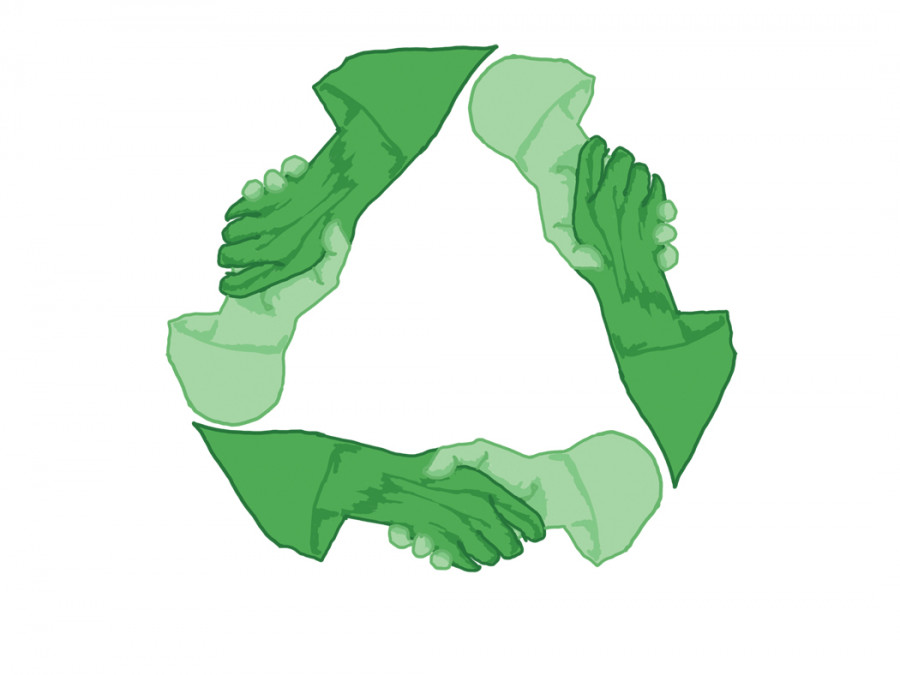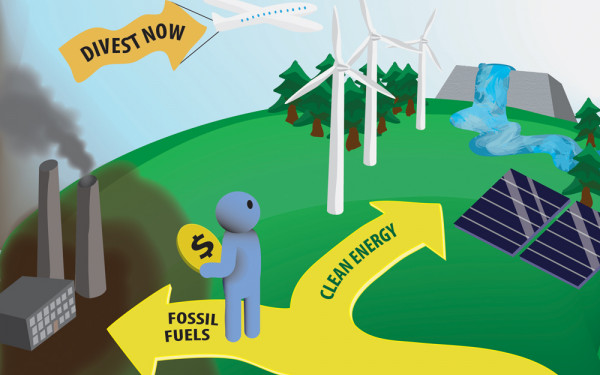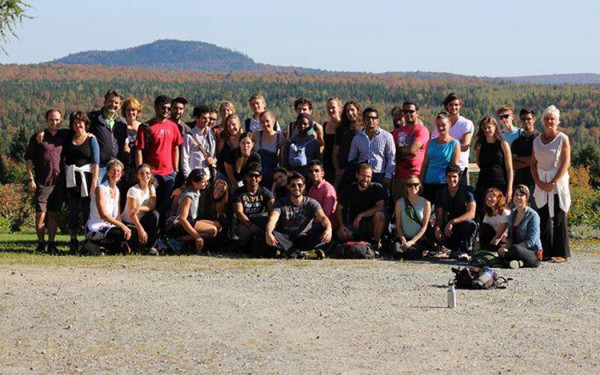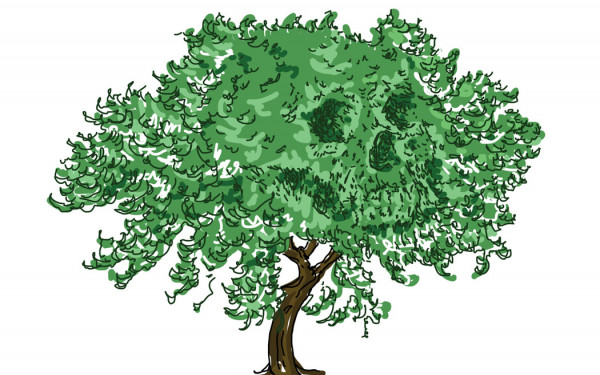Stop, Collaborate and Listen
This Ain’t No One Man Show
Turn to the person next to you and discuss the meaning of sustainability—take as much time as you need, I’ll wait.
That was fun! Let me guess what you talked about: it had something to do with compost or local food production. Perhaps you’re passionate about trans rights, or cooperative business models.
Maybe what you said to that person had something to do with urban gardening, socially responsible investments, or the integration of fine art into urban design. Oh, I know! You challenged consumerism and discussed how capitalism has warped our collective ideal into always needing more. Either way, I hope you enjoyed yourself because with that discussion, you just participated in something that is at the root of sustainability: collaboration.
There are definitions out there that outline sustainability in terms of the three well-known spheres: environmental, economic and social/political. Definitions are great because they give us an outline, a context for discussion and a jumping off point, if you will. However, the ques- tions about how we get there are still abound. How do we do it, this sustainability stuff?
Truth be told, it takes a lot of different people from many corners of society, talking about how to do things in radically different ways. In order to reach that pinnacle of sustainability that’s all the rage, the list of contributors is endless: artists, engineers, scientists, poets, mothers, farmers, mathematicians, journalists, accountants, electricians, people from marginalized communities, administrators, activists and even bureaucrats—you name it, they’ll be involved.
It’s more than just discussion. We need to come together and create meaningful, constructive plans that call out actions from the past that got us where we are today. We have to recognize the existing unsustainable practices at the core of our society in order to build inclusive plans for change.
We need to come together and create meaningful, constructive plans that call out actions from the past that got us where we are today.
Collaboration is how we get things done, like creating cooperative cafés—the Hive Café Co-op was no one-person show—and build new greenhouses (coming soon to a Loyola Campus near you). Collaboration turns unused or ignored spaces into oases of food production: Le Campus Potager is a collective of folks from all walks of campus-life, growing food right on campus. It’s how divestment from the fossil fuel truly happens and how we begin to create spaces where everyone feels safe.
Collaboration is how we change the world.
So, if you have ever thought that what you are studying doesn’t fit with sustainability, I would say you just haven’t found your spot yet. There are quite a few groups at Concordia that would love to have you as a collaborator, volunteer or worker!
Visit Sustainable Concordia and chat about what’s going on around campus. You could also pay a visit to a different group: the Concordia Food Coalition, the Quebec Public Interest Research Group, the Sustainability Action Fund, Divest Concordia, The Concordia Institute for Water, Energy, and Sustainable Systems and the John Molson Sustainability Group are just a few organizations doing amazing work who would love to talk to you about contributing to the integration of sustainability into university life.
We’re all in this together!
Mark Underwood is the office coordinator at Sustainable Concordia.


_600_832_s.png)


(The_McGill_Daily_600_375_90_s_c1.jpg)

